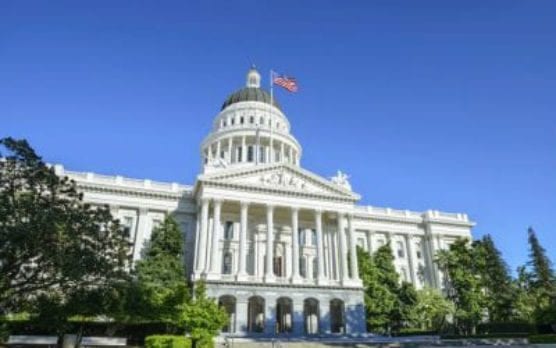The careers of freelance reporters, photographers and editors in California will be threatened come Jan. 1 when a law capping the number of stories they can produce in a given year takes effect, according to a lawsuit filed against the Golden State on Tuesday.
Assembly Bill 5 seeks to provide benefits to independent workers by limiting who companies can classify as contractors. Much has been made about the pushback from tech companies Uber, Lyft and DoorDash who would be required to classify their drivers as employees.
Under AB 5, freelance writers and photographers would see a hard cap of 35 pieces of content per year. But enforcing the cap will allow the state to determine who can freelance by limiting certain speakers to just 35 submissions per client per year according to the lawsuit filed by the American Society of Journalists and Authors (ASJA) and National Press Photographers Association (NPPA).
The journalism groups say “marketers, graphic designers, grant writers, and fine artists” were given exemptions under AB 5, while “still photographers, photojournalists, freelance writers, and editors” would be held to the cap.
AB 5 will bring “significant new costs and disadvantages to the members” of the journalism organizations if they’re required to be classified as employees rather than freelancers. Freelancers will see their client-turned-employer forced to pay unemployment taxes, workers’ compensation, state disability insurance, paid family leave and sick leave, according to the complaint – making freelancers more costly and a less attractive alternative, according to the lawsuit.
Freelance writer and former president of ASJA Randy Dotinga said some journalists have reported being told publishers would no longer work with them because of the restrictions from AB 5.
“There are weekly columnists who are told they can’t continue writing because they would meet that cap,” Dotinga said in a phone interview. “Publishers could get scared to use me for work, but I feel like I have to stand up and speak out for other freelance journalists.”
Freelancers could also lose ownership of the rights to their creative work, which is vitally important for videographers and photographers.
The groups say AB 5 “singles out” those freelance reporters and deprives them of their rights to free speech, free press and equal protection. The groups seek a court order finding AB 5’s targeting of freelance reporters, editors, newspaper cartoonists, photographers and photojournalists unconstitutional.
They are represented by Caleb Trotter and James Manley of the Pacific Legal Foundation.
In a statement, ASJA president and attorney Milton Toby said, “We have no choice but to go to court to protect the rights of independent writers and freelance journalists as a whole. The stakes are too high, and we cannot stand by as our members and our colleagues face ill-conceived and potentially career-ending legislation.”
This week, New York-based Vox Media said it would sever ties with hundreds of contract writers and editors in California as the company braces for the new law. Content produced under the sports blog network SB Nation will now be done by a team of staff employees.
“That new law makes it impossible for us to continue with our current California team site structure because it restricts contractors from producing more than 35 written content “submissions” per year,” SB Nation executive director John Ness wrote in a blog post.
Under AB 5, Vox would have been required to reclassify some of those workers as employees.
The bill by Assemblywoman Lorena Gonzalez, D-San Diego, codifies the game-changing labor standard established by the California Supreme Court in the 2018 ruling Dynamex v. Superior Court.
Backed by unions including Service Employees International Union, California Labor Federation and State Building and Construction Trades Council, AB 5 will offer protections to many janitors, truck drivers, retail workers, and childcare workers in the state.
A study by researchers at the University of California, Berkeley, found most independent contractors in the state will benefit from AB 5.
Saba Waheed, a research director at the UCLA Labor Center, said AB 5 provides clarity for freelance workers who were being relied upon as employees by some industries in California.
“AB 5 is coming to shine a light on the different industries,” Waheed said in a phone interview. The industries include janitorial services, nail salon workers and freelance writers.
“Lots of workforces saw the creation of subcontracting workers to undermine those traditional employee roles. Those are the industries that need this light on them,” Waheed said.
Uber, Lyft and DoorDash say they’re seeking to place a measure on the November 2020 statewide ballot to allow voters the chance to overturn AB 5.
California Attorney General Xavier Becerra’s office said it has not yet seen the lawsuit and did not comment further.
Like this:
Like Loading...
Related





 Tweet This
Tweet This Facebook
Facebook Digg This
Digg This Bookmark
Bookmark Stumble
Stumble RSS
RSS

























REAL NAMES ONLY: All posters must use their real individual or business name. This applies equally to Twitter account holders who use a nickname.
0 Comments
You can be the first one to leave a comment.